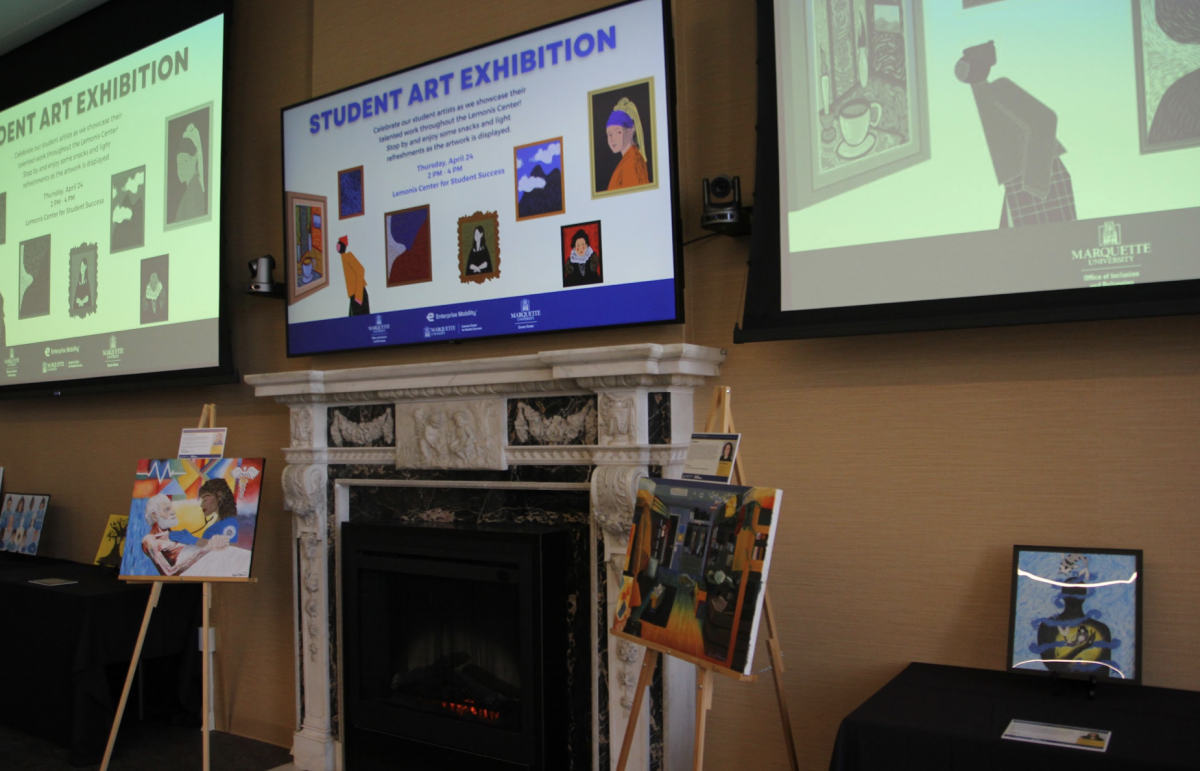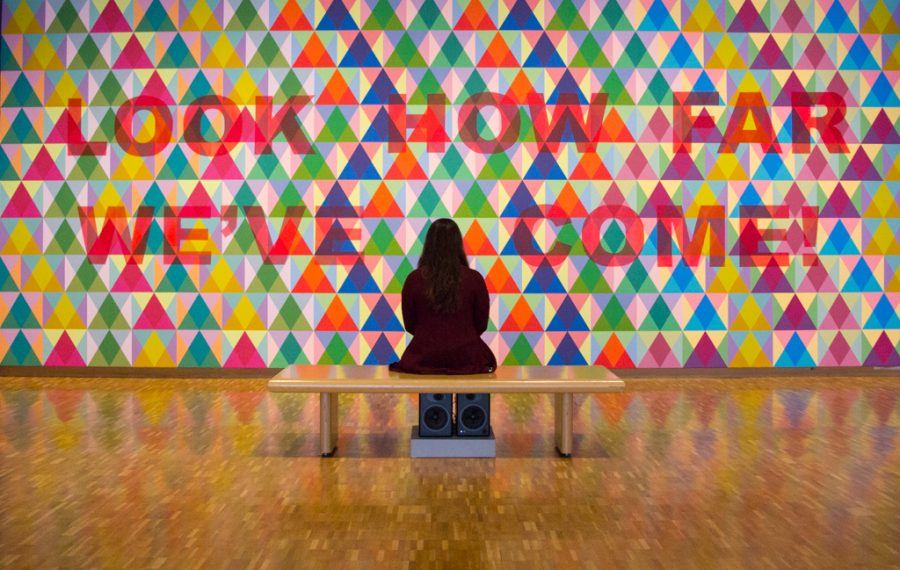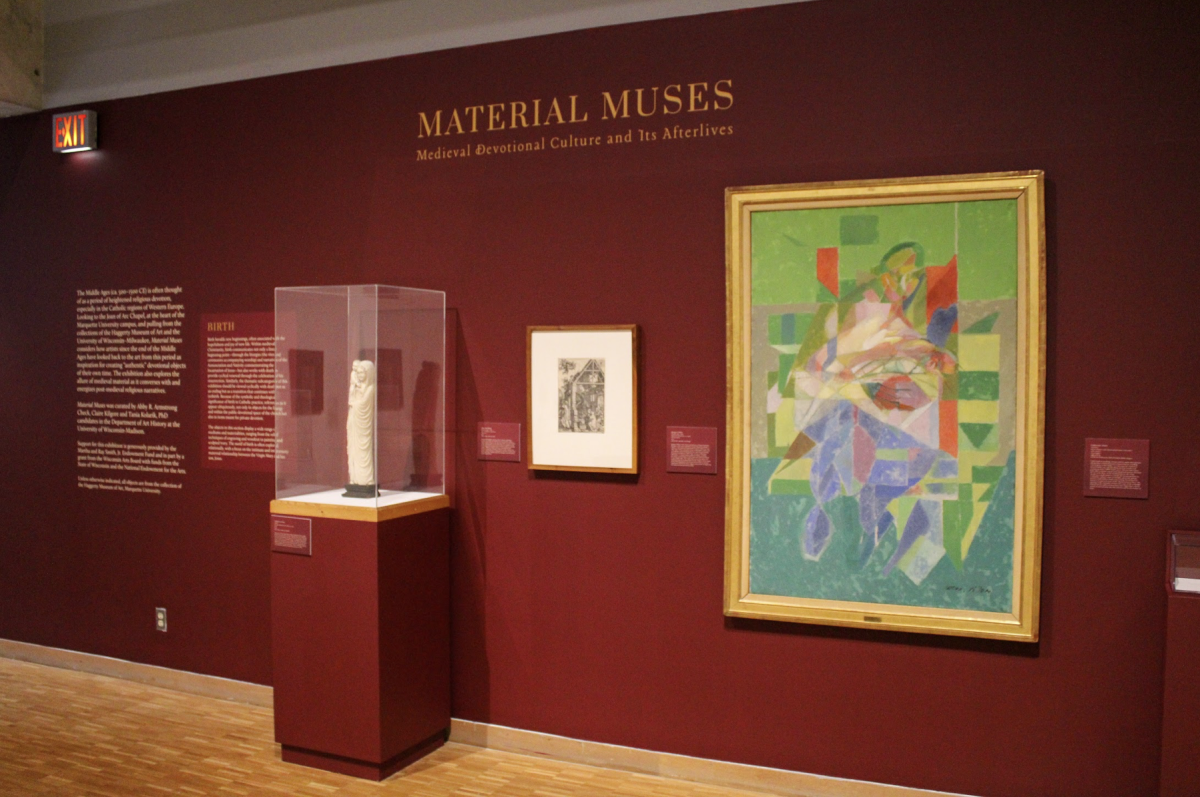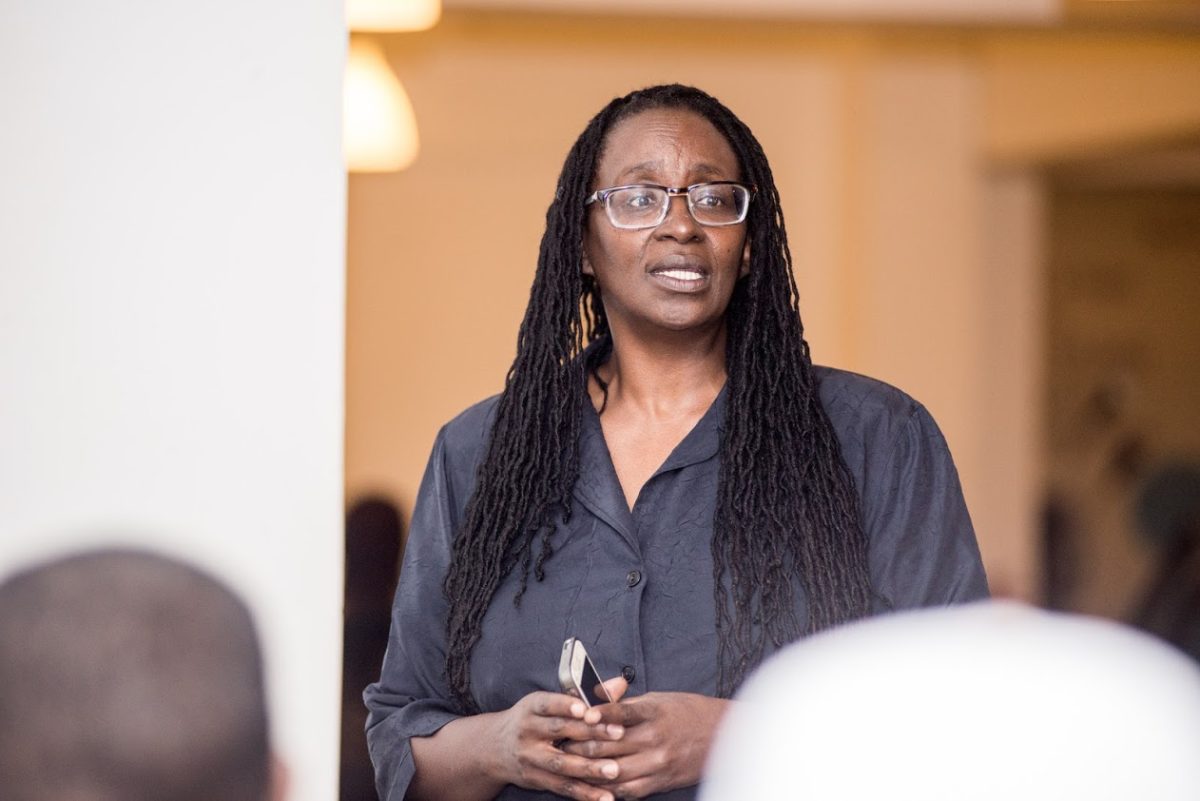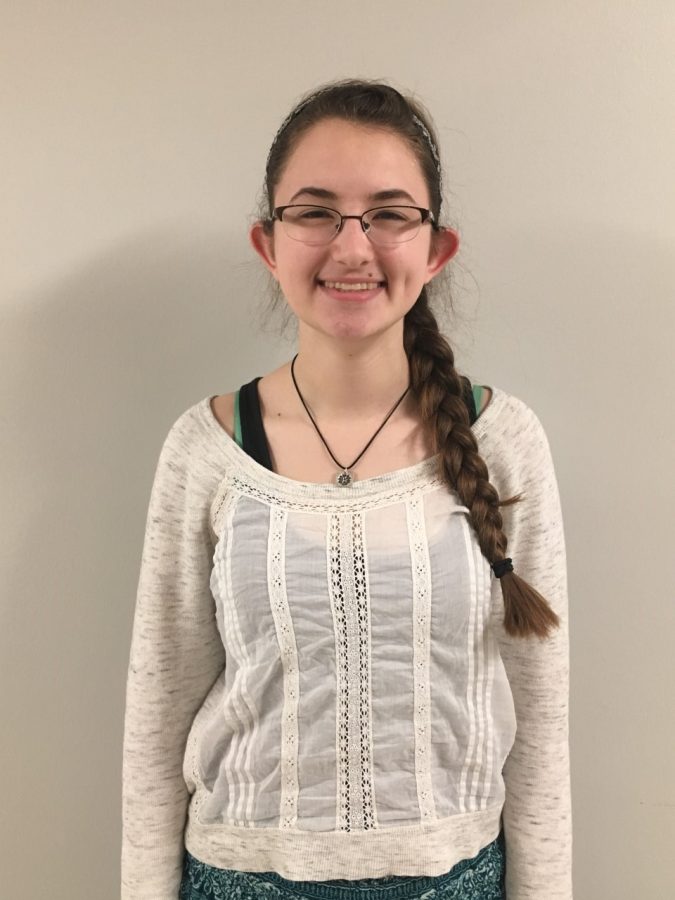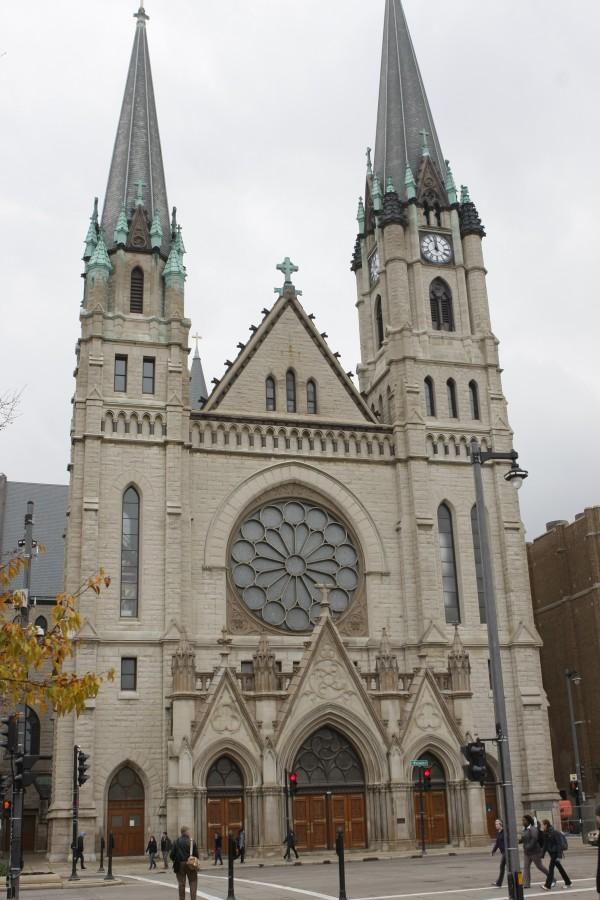
Theresa Lauer is studying psychology so she can assist patients in expressing emotion and looking inside themselves for healing purposes. The senior in the College of Arts & Sciences believes incorporating art into her professional work will help her patients do this.
Psychology she can study at Marquette. Art, she cannot.
That’s why she goes to the Milwaukee Institute of Art and Design in the Third Ward to pursue a minor in studio arts.
Devising the design
In the next few weeks Provost John Pauly plans on announcing a new Fine Arts Task Force that would monitor where the arts stand at Marquette.
Pauly said the administration is trying to work out issues the MIAD program has with scheduling and convenience.
Marquette and MIAD have a reciprocal cross-registration program that allows Marquette students to minor in studio arts and art history at MIAD and MIAD students to minor in business and advertising at Marquette.
For the studio arts minor, students can pursue one of four programs. Two programs are recommended to accompany any major while the other two are recommended for theatre arts or advertising majors.
MIAD students have free access to Marquette’s Student Health Service and Counseling Center. They also receive a reduced price at the Rec Plex and Rec Center, according to the MIAD Student Handbook.
Lauer loves attending MIAD. She said being in a different community with a different set of values and way of looking at the world has given her lots of room to grow.
On Marquette’s campus there are some opportunities for students interested in the arts.
The College of Communication offers students a major in theatre arts as well as minors in film and music.
Art venues on campus are the Haggerty Museum of Art, the Helfaer Theatre — which houses the department of performing arts — and the Varsity Theatre — home to the music program.
Each year, the Haggerty hosts three sessions of three week walk-in drawing classes on Fridays, said Lynne Shumow, curator of education and community outreach for the museum.
There’s even an art club on campus.
But for some students, this is not enough.
“Marquette has a lot of its own strengths, but (art) isn’t one of them,” Lauer said.
[youtube]CeuEiSaHTc4[/youtube]
Finding art in all things
The arts are very important to Jesuits, especially when it comes to education, according to the Rev. Joe Mueller, associate dean for academic affairs for the College of Arts & Sciences and associate theology professor. If Jesuits can, they try to include the arts in students’ experiences, Mueller said.
Jesuit principles say God can be found in all things. With this in mind, the Jesuits look for how the beauty of God’s creation can be expressed through art, he said.
Twenty-one of the 28 member institutions of the Association of Jesuit Colleges and Universities — of which Marquette is a member — have a fine arts department.
Marquette only has a performing arts department, with no academic way for students to pursue fine arts on campus.
It wasn’t always this way.
In the 1975-’76 Undergraduate Bulletin, courses offered included basic drawing, history of art, 39 music classes and 43 theater classes.
The number and type of courses offered changed over the decades as the university reorganized colleges and programs.
From the early 1970s to the 2003-’04 Undergraduate Bulletin, students were required to take one fine arts class or another literature course as part of the core of common studies.
In the 2004-’05 Undergraduate Bulletin to current bulletins, the requirement has changed to a literature/performing arts requirement.
Literature classes from the English and foreign languages and literatures departments and one theatre arts appreciation class, among other things, can fulfill this new requirement.
Fine arts usually refers to visual arts, such as drawing or sculpture, and performing arts includes music and theater. But Marquette’s former fine arts requirement also included performing arts.
Currently, Marquette offers 20 music courses, 40 theatre arts courses and 10 film courses.
Erik Janners, director of music, said recent changes made to the music program show the support the Marquette administration gives to the arts.
These changes include: a music minor, adding another band, renovations to the Varsity Theatre that provided students with practice spaces as well as making the theater more aesthetically pleasing and a new faculty position for the program, Janners said.
He also pointed out that most of the work needed to add the music minor to the curriculum took just six weeks.
Stephen Hudson-Mairet, chair of the department of performing arts, said he hopes the department will add a dance minor. He’d like to see it added as quickly as the music minor.
The theatre program has also been improving, Hudson-Mairet said. There are 50 theatre arts majors and just this year a theatre arts professor was put back on track for tenure, he said.
Hudson-Mairet said he is in the process of applying for accreditation for the theatre arts program from the National Association of Schools of Theatre.
Being accredited will affirm the program does what it sets out to do. Hudson-Mairet said he hopes accreditation will boost attendance at shows and the number of applicants to the program, he said.
Drawing from experience
Of the Marquette students interviewed who take classes at MIAD, all said they love attending the art school and only have complaints about some of the logistical issues.
The only downside for Lauer is the frustrating lines of communication between MIAD and Marquette.
There are 34 Marquette students taking MIAD classes this fall, said Kerry Grosse, associate registrar, in an e-mail.
Because there’s only a small number of students that participate in the MIAD program, these students aren’t a priority for either school, Lauer said.
Some of the logistical issues students face are registering for the program, signing up for classes, knowing what’s happening on MIAD’s campus and knowing when deadlines for projects are, she said.
Marquette students who wish to take classes at MIAD must complete a cross-registration form available at the Office of the Registrar’s Web site.
Students sign up for classes at MIAD the same way they usually do, by using Snapshot and Checkmarq.
Lauren Lakomek, a senior in the College of Communication, said there’s no resource to help students through the process of taking classes at MIAD. It’s necessary to talk to other students who have already taken classes to figure out how to navigate the system, she said.
The process for enrolling in classes is a hassle, Lakomek said. She is pursuing an advertising major and studio arts minor.
Because Marquette students register for classes after MIAD students, they don’t know what courses they’re taking until the week before classes start, according to student sources. Then, they have a week to buy their supplies.
For students like Lakomek who aren’t “art kids,” figuring out where to procure supplies is difficult.
“It shouldn’t be a hassle, it should be fun,” Lakomek said.
Tuition for the MIAD classes is transferred internally between the two schools. Students do not have to pay extra to attend MIAD, but they do have to pay for their supplies, which for art classes is the equivalent of books, said Jean Grow, director of the fine arts minor and associate advertising professor.
Allison Herman, a junior in the College of Communication, started taking classes to fulfill her self-designed cross-cultural communication design minor at MIAD as a freshman.
Herman said the first couple of weeks were tough as she tried to figure out which buses would take her to MIAD.
Now, she loves having the opportunity to travel off campus and credits the MIAD program for helping her explore more of Milwaukee.
Transportation is not provided by either university. Students must bus, walk or bike to get from campus to campus.
Sketching out a plan
The relationship with MIAD will change a lot over the course of the next year, Grow said. Her vision for the fine arts minor is to make it more collaborative between Marquette and MIAD, she said.
Grow said she is currently in the process of gathering input from alumni working in creative fields and those that minored in fine arts, the Office of Admissions and all of Marquette’s colleges. Grow said she hopes to have preliminary ideas by spring so a new approach can be tested out next fall.
There are no concrete ideas for the revamped program, Grow said. She did throw out a few possible suggestions: physically moving some MIAD classes to Marquette’s campus, Marquette and MIAD professors teaching collaboratively, having student shows here and finding a way to make transportation easier.
“There’s just so much possibility we haven’t tapped into yet,” she said.
Grow said she would like to see the minor simplified but more flexible in the way students can design their minors.
Members of Pauly’s Fine Arts Task Force have similar ambitions to work on the fine arts program. Although the task force has not met this year, Pauly said it will bring together people who worked on strengthening the music minor.
After discussing Marquette’s fine arts history, Pauly said, “I think it would be nice to get some of that back and if we could find a place in the core for it, that would help.”


